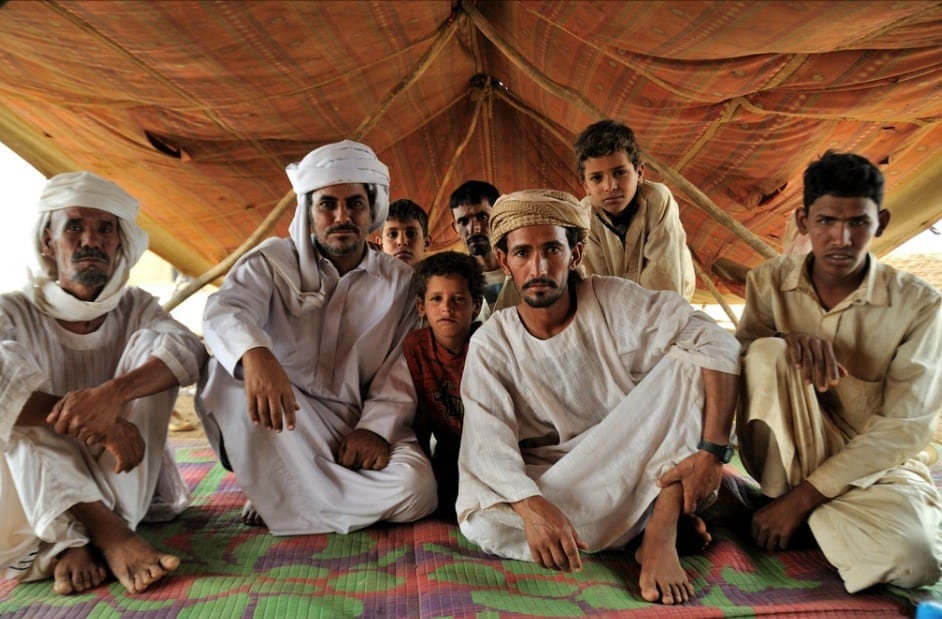Customs in Arab Muslim Cultures
Whether you are meeting at a Muslim friend’s home or doing business in a Muslim country, there are certain social graces, customs and behavior which, when understood, can help avoid unnecessary complications or hurts.
“So in everything, do to others what you would have them do to you, for this sums up the Law and the Prophets”
– Jesus, Matthew 7:12
The so called ‘Golden Rule’ of Jesus best sums up how to be prepared for going to any foreign country or to a neighbors house – despite customs and cultural differences. With regards to Muslims, it is interesting to note that in an imitation of the golden rule, one Hadith says: “A Muslim should treat others as he would wish them to treat him (and) Like for others what he would like for himself.”
Important Customs
It’s worth noting that there is no standardized global Muslim culture or even Arab Muslim culture. Indeed, there are thousands of cultures that vary in many dimensions. Yet there are a few key traits that seem to be engrained throughout the multitude of Arab Muslim cultures and world views spanning the globe.

Greetings and Contact
Handshakes, though regarded as important in many Arab cultures, usually do not possess the same firmness as handclasps of many Europeans or Americans. Most Arabs shake hands every time they meet you and every time they leave you. This applies whether they meet you on the street, in an office, at a conference, restaurant, or at home. The customs and behavior in Saudi Arabia and much of the Persian world is to shake hands on meeting, chat a bit, and shake hands again on leaving – even if you meet ten times a day. If sitting, rise when shaking hands as well as when an esteemed person enters a room.
Touching, long handshakes, grasped elbows, even walking hand in hand by two males is common place in the Arab world. A considerable number of Arabs touch more between the same sex, to show relationship. As Arab customs and behavior condones the outward display of affection between male friends, one may see Arab men, even officials and military officers, holding hands as they walk together or otherwise converse with one another. If an individual Arab does not touch you, he does not like you–or he may be trying to restrain himself because you are not used to being touched. A full body embrace, accompanied with hugging, should not be initiated until you are sure that the Arab is a close friend. If the Arab initiates it, participate and consider yourself honored and/or accepted. Contact between the opposite sex in public is considered close to obscene.
Use the right hand to eat, touch and present gifts. As in much of Asia and the Middle East, the left is generally regarded as unclean.
Greetings and Conversations
Small talk and ritual greetings is normal. Middle Easterners often greet each other with a number of ritual phrases and fixed responses. Ancient custom governs these interactions. To Western eyes, profuse greetings, inquiries about health and well-being, often take up inordinate amounts of time but it is important in establishing friendly relations. Remember, however, it is insulting to ask about a Muslim’s wife or another female family member.
Eye contact during discussions–often long and direct–is important. Staring is not necessarily rude (except gazing at women).
Be aware of appearing to be in a hurry when you are among Arabs. For example, during a business appointment or social visit with an Arab, do not look at your watch or otherwise act as if you have little time to talk. Arabs can be very offended by this. Time is much less rigidly scheduled in Arab countries than in western countries.
Pointing your finger or a pen at anyone while speaking, or beckon anyone with your finger. It is considered a threat, and only animals are treated in this manner.
Distance in talking with one another (body space) may be much closer with Middle East peoples than with Westerners.
Hospitality and Visits / Meals
Hospitality and giving a warm reception to strangers goes back to the culture of the desert. Developed over centuries, where the desert environment bound traveling nomads to depend on the graciousness and generosity of others, hospitality enabled inhabitants of the Arabian Peninsula to survive thirst, hunger and sudden raids/attacks. Many Middle Eastern peoples continue this custom of showing courtesy and consideration to strangers. Demonstrating friendliness, generosity and hospitality become expressions of personal honor, even sacred duties.
Take off your shoes at the entrance and leave them there before going in. Sometimes oversize slippers are provided for you to put on.
Take care when sitting. Avoid stretching legs in front of or sitting up higher than others, sitting with the left hand behind the back, or positioning oneself so the shadows fall upon half of one’s body.
Avoid putting feet on tables or furniture. Show respect. Refrain from leaning against walls, slouching in chairs, and keeping hands in pockets. Keep from pointing with the feet. Do not show the soles of the feet, as they are the lowest and dirtiest part of the body.
Allowing your host to initiate discussion topics is a good policy. Expect handshakes from all personnel in a party. Sometimes Arabs use double meanings in conversation, which allows for all parties to feel good and not lose face. Such use shows the practitioner to be a person of culture.
Use the right hand to eat. The left is generally regarded as unclean.
Expect the actual eating of a meal to come at the conclusion to an evening’s festivities. Touch food and pass it with your right hand only. In some areas, Middle Easterners consider it impolite to eat everything on one’s plate. Leaving food becomes a symbol of abundance and serves to compliment the host.
Outward Affection and Gestures
* Take off your shoes at the entrance and leave them there before going in. Sometimes oversize slippers are provided for you to put on.
* Men should not go into a mosque wearing shorts, and women should not go there wearing short sleeves or sleeveless dresses.
* Do not talk loudly.
* Do not walk directly in front of people praying.
* Do not take pictures of people in a mosque, particularly women.
* Mosques are considered to be shelters for homeless people.
* Do not be surprised to find mosques without furniture, except for the carpet. The Islamic religion advocates a simple way of life for its followers.
Final Thoughts
To sum up, here are a few key points to keep in mind:
- Practice Humility: Have a demeanor which models kindness and forbids being harsh, rude, or even speaking loudly to others.
- Seek Moderation: Many Muslims value deliberation, a careful consideration which focuses on the outcome of a matter. Moderation in speech, and avoidance of being nervous, highly strung or liable to sudden anger, characterizes many of those who “submit to God.”
- Sincerity is Key: A kind, honest, humble approach – free of an arrogant and overbearing attitude – naturally opens the way for agreeable exchanges. (Understanding Arabs, p. 112.)





Is it impolite when greeting a professional Muslim man, to shake hands.I am a professional female of equal standing and he recoiled when I tried to shake hands.
I’m pretty sure that is because physical contact with a woman, regardless of how simple a handshake may seem, is still forbidden unless married and in the confines of one’s home. I’m sure extenuating circumstances such as serious injury are exempted, but a handshake with a woman is considered sinful. Perhaps you should have bowed your head in greeting? I am not sure, but it most likely would have been better than trying for a handshake. Maybe someone else will have some better insight than me, for this is just my personal inference.
i know its been a long time since your post but ill reply
-we worship “allah” which literally means god and our god is your god except we have different understandings of the concept of god.Ours is one indivisible god eternal and omnipotent doesn’t have a son(figurative or otherwise) and we worship and pray to him and only him.We worship him via 5 daily prayers (u can easily see how prayer is preformed) and through dua(supplication) and fasting in Ramadan…
-as for the fact that our prophet married aisha it might sound outrageous now but ill have u know she was already engaged to another man u can say it was the norm at the time and many historians point this out and truth is thats all there is to the matter and the marriage was consummated after she had her period by a while
-we expect Jesus to return because our prophet prophesied as much and because we believe he never died but instead was saved by god and was taken to heaven till the time he returns to rid the world of evil and become its ruler till judgement day
-Jesus being our judge is impossible because we believe he was a great prophet, the word of god but not anything more he was not divine so no our judge is god himself
-this is a misunderstanding we wont kill the followers of Jesus the fight is between those Christians and even muslims who were fooled by the Antichrist and believed due to his miracles…
This helped a lot I just got here and now understand im also doing a project for hospitality.THANKS
Patty your comment is troubling to me. Why would you want to touch the opposite sex if you are not related to him or married to him? What kind of interest could you possible have in him that is not of an immoral nature that makes your mind or animalistic low life nature desire something that is unlawful to you? I think keeping your hands and low desires to yourself is in fact beautiful and good for society and families. What relationship between yourself and a man should you have? I would never want to see you or any woman not related touching, hugging or engaged in lengthy conversation with my sons or my husband. THAT to me can lead to sex and is vulgar. Take a look around you. Has our society of touching everybody really helped us live better respectful lives? [Edited for brevity, Admin.]
I lived in a Muslim country for eight years. I have never seen a group of people whose minds were so focused on “sex.” I found it deplorable. Touches lead to sex? Really!! It’s what’s in a person’s mind that leads to sex.
Assalamu alaykum,
I just wanted to know your opinion about the following small issue:
Is it ok if a young man, who is grown-up and living alone, living as best as he can according to Islam, does not allow his father, when he comes over to visit him, to smoke or if yes, under strict conditions? The father was sad about this reaction not because of not being able to smoke but of not being treated as a special person, i.e. as father. The young man is actually a person with good manners. I would be very grateful if you could send me your opinion as soon as you can to my personal e-mail address (see above). Thank you. Salam
Suppose I am left handed?
I have decided to sell my home of 43 years after my husband died suddenly a few weeks ago. After an Islamic family viewed the house and made me promise not to sell it to anyone else, something strange happened. Later that evening when I went to pull back the covers on the bed in the spare bedroom, I found 4 single dollar bills rolled up under the pillow! Is this some kind of ritual? Incidentally, they are the new owners!
I’ve never heard of anything like this. It certainly would not be an Islamic tradition. In fact, there are many cultural practices ingrained in people’s lives and worldview, and certainly not all of them come from Islamic customs or faith traditions. Could be a folk or animistic practice from their previous culture/community perhaps.
do Muslims date non Muslims?
It all depends on the family values and culture of the individual. Not many Muslim cultures support the concept of dating, in the first place. And in those that do, many Muslim family members would not generally support a Muslim dating or marrying a non-Muslim. However, in some places (especially in secular or urban areas) this does occasionally happen.
Is it proper In Islam to prostrate or kneel down to greet your parent or Senior as being practise in some parts of Africa, if not where can one find the references.
Hi,
As we are not an Islamic religious website, I am not sure I can give you good advice. I’m not sure if this related to Islam at all, even though it can be quite common in many cultures.
-D
Hi, so my wife and I run a landscaping business and we have started doing small jobs in around the grounds of our local Mosque. My wife does mow certain areas and she does help with bush trimming and clean-ups. She says she gets funny looks from people and Idk if there’s something we can do to make people more comfortable I really like working there. Just trying to be respectful.
Hi Andres,
If the mosque has hired you and your wife then they should be ok with it. However, there may be cultural considerations to take into account. For example, some very conservative mosques do not allow women to attend, although in North America this is quite rare. Also, a woman working in the mosque might draw attention simply because she is one of the few (or maybe only) women there. So we would suggest that if she is working there that she wears loose clothing that covers her arms and legs. This would show respect and reduce any staring that relates to clothing. Finally, if the mosque caters to many foreign born Muslims, consider that staring might be quite common in their home cultures. It could be they are staring since your wife is working outdoors, which might just be a novelty to them.
Hope all goes well and your work prospers.
-David